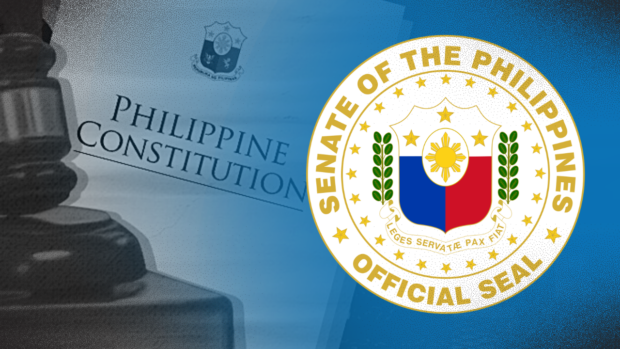
MANILA, Philippines — Despite the lack of enthusiasm for charter change in the Senate, Camarines Sur Rep. Luis Raymund Villafuerte Jr. urges senators to swiftly deliberate on their version of bills pushing for the initiative to give the Commission on Elections (Comelec) time to prepare for the election of constitutional convention (con-con) delegates on Oct. 30.
That would then be held simultaneously with barangay and Sangguniang Kabataan elections (BSKE).
The poll body earlier said it would need to print another 67 million ballots for the Con-con elections, after printing 91 million for the BSKE.
According to Villafuerte, if the Senate votes down charter change, “we in the House would respect such a decision by a majority of our senators and let this latest initiative on constitutional reform kick the bucket.”
Still, Villafuerte asked senators to “give serious thought to the timely plenary action on this latest constitutional reform proposal,” citing the huge backing at the House for the measures which would “rid the charter of its inward-looking provisions on foreign participation in businesses that have turned off investors and put a damper on foreign direct investments.”
On Tuesday, the House of Representatives overwhelmingly passed on its third and final reading the enabling bill for Resolution of Both Houses (RBH) 6, which calls for a hybrid constitutional convention that would tackle amendments to or the revision of the Constitution.
A total of 301 lawmakers voted in favor of House Bill No. 7352, while there were seven who opposed it — ACT Teachers party list Rep. France Castro, Gabriela Women’s Party Rep. Arlene Brosas, Kabataan party list Rep. Raoul Manuel, Albay Rep. Edcel Lagman, Camarines Sur Rep. Gabriel Bordado Jr., Basilan Rep. Mujiv Hataman, and Davao City Rep. Paolo Duterte.
There were no abstentions.
Premature
Lagman said the “Con-con Act” was premature and an exercise in “inordinate futility.”
“No less than the Senate president disclosed that the Senate cannot muster the extraordinary requisite vote to join the House in calling for charter change via a con-con,” he added.
Hataman expressed a similar view as he asked: “Why are we attempting to pass an implementing law for RBH 6 when as it is right now, it is not yet ‘implementable,’ so to speak, because it still lacks Senate approval?”
For her part, Brosas pointed out that “it takes two to cha-cha,” and described the hybrid constitutional convention for charter change as the “most dangerous.”
Neither RBH 6 nor its implementing bill HB 7352 would take effect without the Senate’s concurrence and approval.
A stalemate could ensue should the Senate propose a constituent assembly as the mode for charter change. Senate President Juan Miguel Zubiri stressed earlier, however, that charter change was not a Senate priority for now.